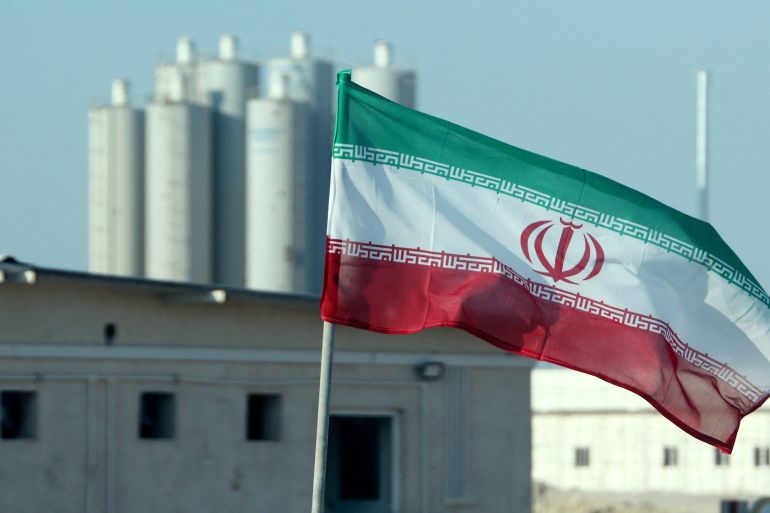Focus on the IRGC ‘terror’ designation in Iran nuclear talks
Iran and the US are negotiating IRGC designations with help from the European coordinator of the nuclear talks.

Tehran, Iran – The issue of a “terror” designation on Iran’s Islamic Revolutionary Guard Corps has taken centre stage during the ongoing efforts to revive the country’s 2015 nuclear deal with world powers.
As the European Union’s negotiations coordinator, Enrique Mora, met with Iranian officials in Tehran on Sunday, the discourse there and elsewhere was dominated by whether the United States will lift its “foreign terrorist organisation” (FTO) designation of the IRGC.
Keep reading
list of 3 itemsCelebrating Nowruz as a Black Iranian
Sister accuses UK government of abandoning Morad Tahbaz in Iran
Mora and Iranian chief negotiator Ali Bagheri Kani exchanged views during their meeting and agreed to maintain contact. Mora then met with foreign minister Hossein Amirabdollahian.
Both Iranian officials told him that if the American side is “realistic”, an agreement can be reached to revive the Joint Comprehensive Plan of Action (JCPOA), as the accord is formally known.
Mora will soon head to Washington, where he will meet American officials on Monday.
In an interview with state television on Saturday, Amirabdollahian had confirmed that the FTO designation, in addition to sanctions imposed on IRGC subsidiaries and entities, is the main remaining obstacle to an agreement.
The diplomat said senior IRGC commanders have told him the talks should not be stalled by the issue of the designation if an agreement is within reach, but he vowed that in spite of this “self-sacrifice”, he would not grant concessions on this issue.
‘Most designated in the world’
The issue of the terror designation was also discussed at the Doha Forum international conference on Sunday where both Iranian and American officials were present.
Former Iranian foreign minister, Khamal Kharrazi, told the forum that the designation needs to be lifted and that several IRGC entities need to be delisted as they are integral to the Iranian economy.
Speaking after Kharrazi, US Special Iran Envoy Robert Malley said the final hurdles are difficult to clear and he is not confident a deal is imminent, but a restored JCPOA would benefit Iran, the US and the region.
He also pointed out that even if the FTO designation is lifted, other designations targeting the IRGC will remain in place.
Meanwhile, US Secretary of State Anthony Blinken was questioned about the IRGC’s designation during a press conference with his Israeli counterpart, Yair Lapid.
Asked if the IRGC is a “foreign terrorist organisation”, Blinken said it is “probably the most designated organisation – one way or another – in the world among the organisations that we designate, including the foreign terrorist organisation designation”.
Lapid was more direct unequivocally calling the IRGC a “terror organisation that should be dealt as such”, adding that the IRGC has “proxies” across the region that include the Hezbollah in Lebanon, the Houthis in Yemen, and Islamic Jihad in Gaza.
Both reiterated their commitment to preventing Iran from obtaining nuclear weapons.
The US top diplomat said “the return to full implementation” of the nuclear deal was “the best way” to prevent Iran from acquiring a nuclear weapon.
Iran has significantly ramped up its nuclear programme since the unilateral withdrawal of the US from the JCPOA in 2018 but has maintained that it will never seek a nuclear weapon.